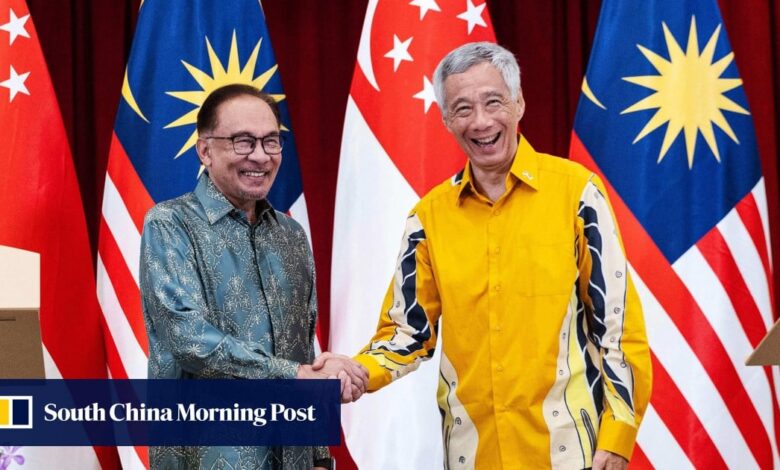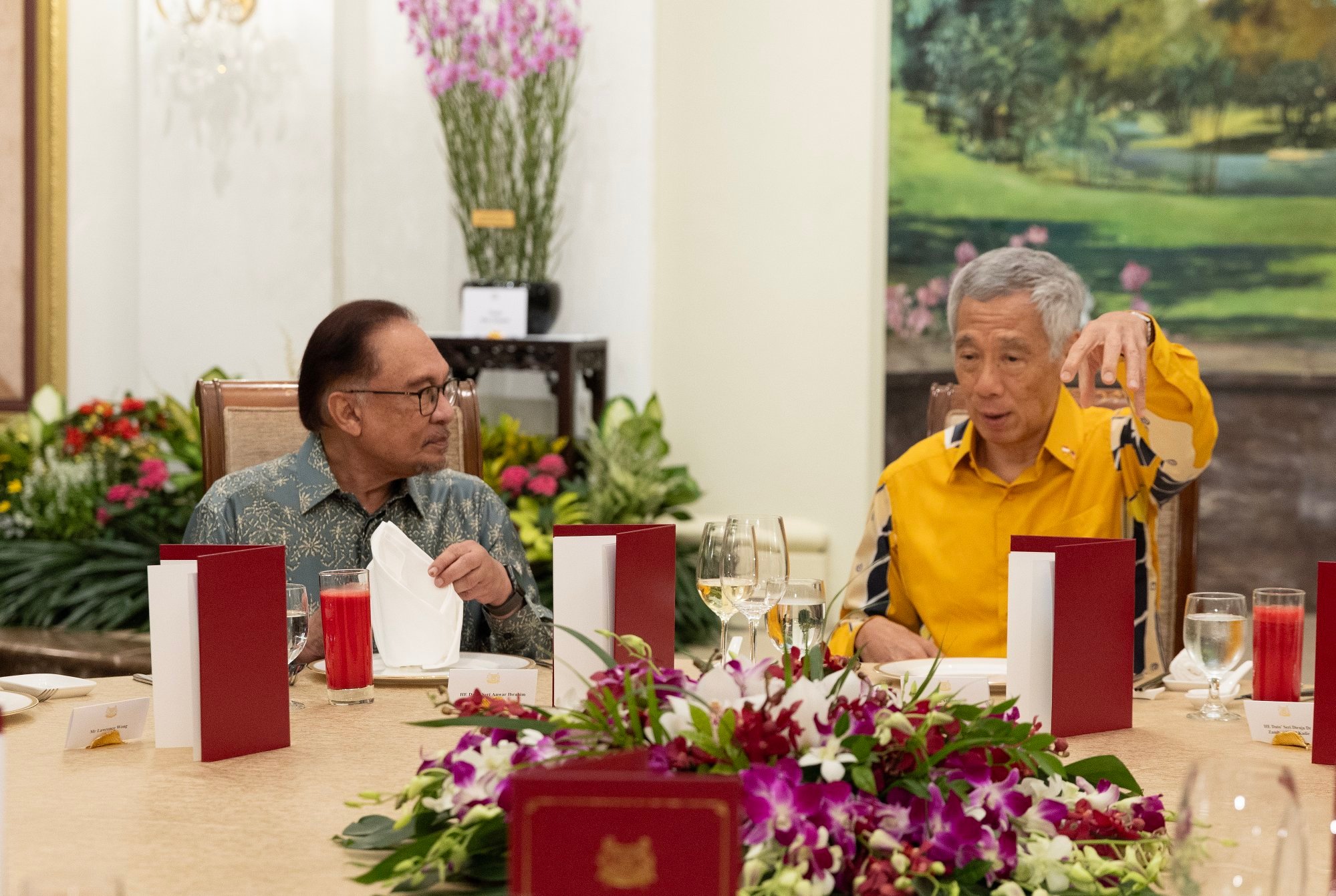Singapore, Malaysia to develop border economic zone, in sign of ‘collaborative’ boost to ties

“We have great hopes. But first we have to do the feasibility study, and we have to negotiate the MOU, and we’re hoping to have that done by early next year,” Lee said during a press conference at the 10th Singapore-Malaysia Leaders’ Retreat. “It’s a lot of work … but we would like to see it done as soon as we can.”
Analysts said the tone and outcome of the leaders’ retreat suggested that bilateral ties were headed in a positive direction, and were optimistic that both countries would be able to deepen cooperation in areas such as the special economic zone.
Hafidzi Razali, director at political risk consultancy BowerGroupAsia, said a joint statement issued after the retreat suggested a “collaborative tone” and signalled “commitment to previously announced initiatives” such as better traffic management, cross-border electricity trade and improving water yields.
The statement also showed the Anwar administration had taken a more “diplomatic and collaborative” approach towards mutual interests compared to his predecessors, Hafidzi added.
The Johor-Singapore special economic zone is positioned to attract investors in areas such as healthcare, electronics and finance. With operational details scarce, analysts said it was too early to tell what the economic potential of the project would be.

During the retreat – widely seen as a litmus test for bilateral relations – Lee and Anwar discussed a range of issues, including land connectivity and long-standing territorial disputes. Other areas prioritised for development include the Iskandar Malaysia project, a development corridor in Johor aimed at attracting foreign investors to Asean countries.
Anwar first visited Singapore as prime minister in January, during which the two countries signed bilateral agreements to deepen cooperation in the digital economy, green economy and cybersecurity.
Malaysia, Singapore sign deals to deepen ‘long-standing and immutable’ ties
Malaysia, Singapore sign deals to deepen ‘long-standing and immutable’ ties
Singapore and Malaysia have deep economic ties and the city state is also among the largest contributors of foreign direct investments in its northern neighbour, making up more than 8 per cent of its total foreign direct investment last year.
Malaysia had in 2017 reopened a decades-long dispute with Singapore and urged the United Nations’ top court to overturn a 2008 ruling which granted its neighbour sovereignty over the land. Malaysia then discontinued proceedings for the interpretation and revision of cases a year later.
BowerGroupAsia’s Hafidzi said it was “encouraging that the diplomatic discussion will be based on the resolution, such as on maritime delimitation, a mechanism of international law”.
Anwar, meanwhile, praised Singapore for supporting the recent UN draft resolution calling for a ceasefire in Gaza.
“Singapore and Malaysia supported the … UN resolution on this ceasefire. And that is, to me, very critical for now,” he said, noting that this was a position adopted by most countries.
Lee and Anwar also expressed confidence in Johor Bahru-Singapore Rapid Transit System Link, which can transport up to 10,000 passengers between Johor Bahru and Singapore every hour in each direction. The service is expected to begin in end-2026.
Lee said this would be the third land link between the two countries and would make travel more convenient, complementing existing efforts to alleviate congestion for travellers. The two Southeast Asian countries share one of the world’s busiest overland borders, with more than 300,000 people travelling across daily.

On other means of improving travel flow, Lee said: “We’ve also started to redevelop the Woodlands Checkpoint to increase its capacity and meet the expected long-term growth and cross-border traffic. I’m glad that Prime Minister [Anwar] welcomes and supports Singapore’s efforts.”
Analysts who spoke to This Week in Asia noted, however, that there was no mention of the 350km high-speed rail line between Singapore and Kuala Lumpur.
“It has become a necessity between the two metropolises, which have seen some of the busiest air traffic in the world,” said Oh Ei Sun, principal adviser at Pacific Research Center of Malaysia and senior fellow at Singapore Institute of International Affairs.
“Malaysia is not proactive in this because it cannot afford to at the moment, and not because it doesn’t want to.”



 Offers free spin
Offers free spin